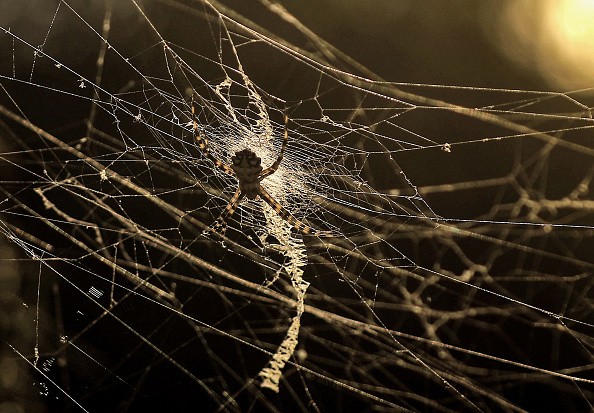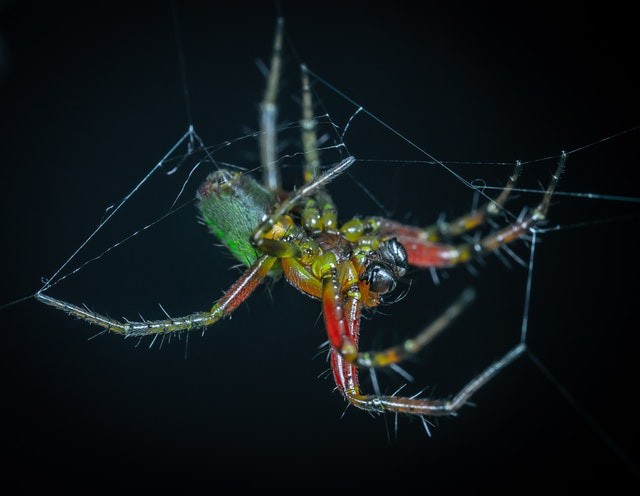A huge spider endemic to East Asia has built its thick, golden web on electrical wires, porches, and vegetable patches throughout north Georgia this year, making some locals remain indoors and has triggered a lot of anxious posts on social media.
Will Hudson's front porch in Winterville, Georgia, became useless as due to a lot of Joro webs 10 feet deep. Hudson revealed he has killed over 300 spiders in his house.
According to the University of Georgia, multitudes of giant spiders have built three-dimensional golden webs across 25 counties.

Joro Spider
The Joro (Trichonephila clavata) is a member of the orb weavers, a spider genus known for its well-arranged, wheel-shaped webs. Joro females have bright yellow, blue, and red patterns on their bodies and are found in Japan, China, Korea, and Taiwan. When their legs are completely extended, they may measure three inches across.
It's still questionable when and how the first Joro spider entered America. The spiders are suspected to have arrived in a cargo container that was left off somewhere along Georgia's Interstate 85, according to CBS station WGCL-TV.
They've even been detected in South Carolina, and Hudson predicts they'll migrate throughout the South. It's also unclear why they're so profuse this year, but scientists agree that their numbers have increased dramatically.
The spiders have flourished in Georgia, according to biology professor Christopher Brown of Georgia Gwinnett College, since the state's environment is comparable to that of huge portions of Japan - warm and humid.
What Danger Does Joro Spider Pose?
According to Cushing and other experts, Joros pose no harm to people, dogs, or cats, and will only attack them if they feel threatened. A researcher who collected them with her bare hands revealed the spiders gently pinch her occasionally but never damaged her skin, Hudson said.
67-year-old Debbie Gilbert isn't patient to find out. She has employed a zero tolerance strategy for spiders in the area around her house located in Norcross, Georgia, twisting their webs with a stick, dragging them down, and trampling upon them.
"I don't advocate killing anything. I live in peace with all the spiders around here and everything else," she said. "But (Joros) just don't belong here, that's all."
Joros dramatically reduce mosquitoes and biting flies, according to Nancy Hinkle, another entomologist at the University of Georgia, and are among the few spiders that will capture and devour brown marmorated stinking bugs, which are a severe hazard to several farms.

Concerns Raised by Naturalists
Ann Rypstra, a researcher at Miami University who studies spider behavior, was more hesitant in her evaluation of the Joro's possible consequences, stating that additional study was required.
Concerns have been expressed by gardeners and naturalists regarding the survival of indigenous spiders, bees, and other pollinators.
Joros are definitely huge enough to eat huge pollinators collected in their webs, according to Cushing, although such insects may be a minor component of their meal.
Rypstra has investigated a similar spider species and claims that their webs are utilized as a food source by other spiders, suggesting that Joro might benefit local spiders.
She said there was evidence that Joros competed with other orb weavers. The bottom line is that there are a lot of unknowns.
Related Article : Science Explains How These Spiders Can Fly
For more news, updates about spiders and similar topics don't forget to follow Nature World News!
© 2026 NatureWorldNews.com All rights reserved. Do not reproduce without permission.





